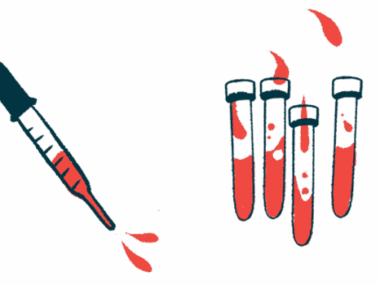Dealing with Misdiagnoses
Written by |

Hey, everyone! I asked my Instagram (Crush Cushing’s) followers which topics I should cover this week. So many of you responded, so thank you for that! The most-mentioned topic? Misdiagnosis.
There are a lot of unfortunate realities about Cushing’s, one being misdiagnosis. This isn’t the type of misdiagnosis where you are diagnosed with Cushing’s, but it’s actually something else. I’m talking about the vice versa — being misdiagnosed with something else when what you really have is Cushing’s.
I can’t speak to all of the specific illnesses you can be misdiagnosed with because I don’t have the full medical knowledge for that; but I know there are quite a few. The most common one, though, is polycystic ovary syndrome (PCOS). The symptoms between that and Cushing’s are similar: weight gain, hair growth (testosterone levels elevated, estrogen lowered), possible period loss, and so forth.
Misdiagnosis can make emotions run extremely high. At first, you might feel relief because you have something. But after a while, the treatment plan isn’t working, and you get discouraged all over again. Everything still feels off, and your symptoms worsen, and you have no idea why. You look up Cushing’s again, and you’re convinced all over again that’s what you have.
You might go back to your doctor to ask for retesting. If they say yes, awesome! If they say no, it’s instant disappointment and discouragement. The problem with the “yes” is that sometimes tests still come back negative for Cushing’s, which adds to the confusion. That’s where it gets tricky. Cushing’s isn’t always florid; there also is cyclical Cushing’s.
Cyclical Cushing’s (without getting extremely technical) is when it’s very difficult to catch the high of cortisol (the rise), unlike florid Cushing’s, where cortisol is consistently high and always rising without lowering levels. So, although your doctor can’t find a “high” with you, that doesn’t mean you don’t have Cushing’s. It just means, unfortunately, that it’ll take a bit longer than usual to be diagnosed. I would suggest Googling methods that help in catching highs with cyclical Cushing’s at night, but those methods don’t have a 100 percent guarantee of catching anything.
You can’t plan which diagnosis you’ll get, if you even get one. But keeping a written journal about your symptoms is key to helping with pinning down a diagnosis. A few photos of changes are good, too.
Also, do activities you enjoy, if you can, as it’s important for your sanity when coping with the (mis)diagnosis journey. Of course, during this time, you may have to change your hobbies to match the new pace your body can go at now. That’s normal and OK!
There really isn’t a secret to getting through a misdiagnosis, though I truly wish there was. Just do your best to put your mental health first, take care of yourself, and be honest with those around you, especially if you have caretakers. It’s incredibly important for the people around you to know what you are experiencing so that if an emergency occurs, you have someone to list symptoms to medical experts so you get the best medical attention possible.
Until next week,
XOXO, Catarina
***
Note: Cushing’s Disease News is strictly a news and information website about the disease. It does not provide medical advice, diagnosis, or treatment. This content is not intended to be a substitute for professional medical advice, diagnosis, or treatment. Always seek the advice of your physician or other qualified health provider with any questions you may have regarding a medical condition. Never disregard professional medical advice or delay in seeking it because of something you have read on this website. The opinions expressed in this column are not those of Cushing’s Disease News or its parent company, Bionews Services, and are intended to spark discussion about issues pertaining to Cushing’s disease.






Annette
I would like to know where I can find a support group to discuss recovery symptoms with others who have experienced Cushing Disease